- Click to share on Facebook (Opens in a new window)
- Click to share on Twitter (Opens in a new window)
- Click here to share on LinkedIn (Opens in a new window)
- Click to email a friend (Opens in a new window)
(CNN) - In a major change in US foreign policy, the White House announced that it would retract its troops before a planned Turkish military offensive.
The US decision gives Turkey a green light to attack the Kurdish forces, which were long backed by the United States and were one of Washington's most reliable partners in Syria.
Who are the Kurds?
Kurdish forces have played a key strategic role in the campaign against ISIS in the region and the operation of Turkey aims to clear the Kurdish militia and the People's Protection Units (YPG), so that they go away from the border with Turkey.
This is why Ankara considers that the YPGs are a terrorist group affiliated with the Kurdistan Workers Party (PKK), which for more than three decades have fought against the Turkish state. But the United States supports the YPG and gives credit to the Kurds for helping to defeat ISIS in Syria.
- Turkey will send soldiers to northern Syria when the United States withdraws from the area, the White House announces
However, beyond their role in the Syrian conflict, the Kurds are a people who have no homeland or official country and most of them reside in countries of the Middle East, including northern Iraq, eastern Turkey, western Iran and small portions of northern Syria and Armenia.
The Kurds were mostly nomads until the end of World War I and the breakup of the Ottoman Empire, and they represent approximately 10% of the population in Syria, 19% of the population of Turkey, 15-20% of the Iraq's population and are the second largest ethnicity in Iran, and its population is approximately 25 and 30 million.
Kurdistan
Since the Kurds have never reached the nation-state state, they have made Kurdistan a non-governmental region and one of the largest stateless nations in the world. This has an area of approximately 191,000 square kilometers.
Parts of the region are recognized by two countries: Iran, where Kordestan province is located; and northern Iraq, site of the autonomous region known as the Kurdistan Regional Government (KRG) or Iraqi Kurdistan.
They also have the Peshmerga, a national military force of more than 100,000 members that protects Iraqi Kurdistan and includes women combatants.
- Trump threatens to "devastate" Turkey's economy if they attack Kurds in Syria
Chronology
October 30, 1918 - (TURKEY) - The Armistice of Mudros marks the defeat of the Ottoman Empire in World War I.
November 3, 1918 - (IRAQ) - With the discovery of oil in the Kurdish province of Mosul, British forces occupy the region.
August 10, 1920 - (TURKEY) - The Treaty of Sèvres describes the dissolution of the Ottoman Empire, and Turkey renounces rights over certain areas of Asia and North Africa. Calls for recognition of new independent states, including autonomous Kurdistan. It never ratifies.
July 24, 1923 - (TURKEY) - The Allies and the former Ottoman Empire sign and ratify the Treaty of Lausanne, which recognizes Turkey as an independent nation. In the final treaty marking the conclusion of World War I, the Allies abandon the demands of an autonomous Turkish Kurdistan. The Kurdish region is finally divided between several countries.
1923 - (IRAQ) - Former Kurdish Governor Sheikh Mahmud Barzinji performs an uprising against British rule, declaring a Kurdish kingdom in Sulaimaniya, in northern Iraq.
1924 - (IRAQ) - British forces retake Sulaimaniya.
1943-1945 - (IRAQ / IRÁN) - Mustafa Barzani leads an uprising, gaining control of the Erbil and Badinan areas. When the uprising is defeated, Barzani and his forces retreat to Kurdish areas in Iran and line up with nationalist fighters under the leadership of Qazi Muhammad.
January 1946 - (IRAN) - The Kurdish Republic of Mahābād is established as a Kurdish state, with the backing of the Soviet Union. The short-lived country encompasses the city of Mahābād in Iran, which is largely Kurdish and is close to the border with Iraq. However, the Soviets withdraw the same year and the Republic of Mahābād collapses.
August 16, 1946 - (IRAQ) - The Kurdish Democratic Party of Iraq (KDP) is established. (IRAN) - On the same day, Massoud Barzani was born in the Kurdish Republic of Mahābād.
1957 - (SYRIA) - 250 Kurdish children die in a movie fire. The Arab nationalists are blamed.
1958 - (SYRIA) - The Government formally prohibits all publications in the Kurdish language.
1958 - (IRAQ) - After the Iraqi revolution of 1958, a new constitution is established that declares the Arabs and Kurds as "partners in this country."
- Look: Trump's challenges: Turkish tension
1961 - (IRAQ) - KDP begins a rebellion in northern Iraq. In two weeks, the Iraqi government dissolves the Kurdish Democratic Party.
March 1970 - (IRAQ) - A peace agreement between the Iraqi government and the Kurds gives the Kurds autonomy. Kurdish is recognized as an official language, and an amendment to the constitution says: "The Iraqi people are made up of two nationalities: Arab nationality and Kurdish nationality."
March 6, 1975 - (ALGERIA) - Iraq President Saddam Hussein and Shah Mohammed Reza Pahlavi of Iran sign a treaty. Iraq refuses to claim the Shatt-al-Arab waterway, while Iran agrees to end its support for the independence it seeks from the Kurds.
June 1975 - (IRAQ) - Former KDP leader Jalal Talabani establishes the Patriotic Union of Kurdistan (PUK). The following year, PUK undertakes an armed campaign against the Iraqi government.
1978 - (IRAQ) - KDP and PUK forces clash, leaving many dead.
1978 - (TURKEY) - Abdullah Öcalan forms the Kurdistan Workers Party (PKK), a Kurdish separatist group.
Late 1970s - (IRAQ) - The Baath party, under Hussein's leadership, uproots the Kurds from areas with Kurdish majorities and establishes Arabs in southern Iraq in those regions. In the 1980s, the Kurds are forcibly removed from the Iranian border, as it is suspected that the Kurds helped the Iranian forces during the Iran-Iraq War.
1979 - (IRAQ) Mustafa Barzani dies in Washington. His son, Massoud Barzani, is elected president of the KDP after his death.
1980 - (IRAQ) - The Iran-Iraq war begins. Although KDP forces work closely with Iran, the PUK does not.
1983 - (IRAQ) - PUK agrees to cease fire with Iraq and begins negotiations on Kurdish autonomy.
August 1984 - (TURKEY) - PKK launches a violent separatist campaign in Turkey, beginning with the death of two soldiers. The conflict eventually extends to Iran, Iraq and Syria.
1985 - (IRAQ) - The ceasefire between Iraq and PUK is broken.
1986 - (IRAQ) - After a reconciliation sponsored by Iran, both KDP and PUK receive support from Tehran.
1987 - (TURKEY) - Turkey imposes a state of emergency in the southeast region of the country in response to the PKK attacks.
February-August 1988 - (IRAQ) - During Operation Anfal ("loot" in Arabic), created to quell Kurdish resistance, the Iraqi army uses large amounts of chemical weapons against Kurdish civilians. Iraqi forces destroy more than 4,000 villages in Kurdistan. It is believed that some 100,000 Kurds were killed.
March 16, 1988 - (IRAQ) - Iraq uses poisonous gas against the Kurdish people in Halabja, in northern Iraq. It is believed that thousands of people died in the attack.
1990-1991 - (IRAQ) - The Gulf War begins when Hussein invades Kuwait seeking its oil reserves. There is a massive exodus of Kurds outside Iraq, as more than a million flee to Turkey and Iran.
February 28, 1991 - (IRAQ) - Hussein agrees to cease fire, ending the Gulf War.
- ISIS counterattacks the bombing and siege of the US and the Kurds
March 1991 - (IRAQ) - The Kurdish uprising begins, and in two weeks, the Kurdish militia gains control of Iraqi Kurdistan, including the oil-rich city of Kirkuk. After allied support to the Kurds is denied, Iraq crushes the uprising. Two million Kurds flee, but they are forced to hide in the mountains when Turkey closes its border.
April 1991 - (IRAQ) - The United States, United Kingdom and France establish a safe haven in Iraqi Kurdistan. Iraqi forces are prohibited from operating within the region, and the Kurds begin to govern autonomously, with the KDP to the north and the PUK to the south.
1992 - (IRAQ) - In an operation against the PKK, 20,000 Turkish troops enter Kurdish shelters in Iraq.
1994-1998 - (IRAQ) - PUK and KDP members participate in an armed conflict, known as the Fratricide War, in Iraqi Kurdistan.
1995 - (IRAQ) - Approximately 35,000 Turkish troops launch an offensive against the Kurds in northern Iraq.
1996 - (IRAQ) - Iraq launches attacks against Kurdish cities, including Erbil and Kirkuk.
October 8, 1997 - (TURKEY) - The United States recognizes the PKK as a terrorist group.
1998 - (IRAQ) - The conflict between KDP and PUK ends and a peace agreement is reached. This is negotiated by the United States, and the agreement is signed in Washington.
1999 - (TURKEY) - PKK leader Abdullah Öcalan is captured in Nairobi, Kenya, by Turkish officials.
2002 - (TURKEY) - Under pressure from the European Union, Turkey legalizes transmissions and education in Kurdish. Turkish forces still fight against the PKK, including military incursions in northern Iraq.
May 2002 - (TURKEY) - The European Union designates the PKK as a terrorist organization.
February 1, 2004 - (IRAQ) - Two suicide bombs kill more than 50 people in Erbil. The targets are the headquarters of KDP and PUK, and several senior Kurdish officials from both sides are killed.
March 2004 - (SYRIA) - Nine people are killed in a football stadium in Qamishli after clashes with riot police. Kurds manifest throughout the city and riots spread to nearby cities in the following days, after security forces opened fire at funerals.
June 2004 - (TURKEY) - State television broadcasts programs in the Kurdish language for the first time.
April 6-7, 2005 - (IRAQ) - Kurdish leader Talabani is elected president of the country by the national transition assembly, and takes an oath the next day.
July 2005 - (TURKEY) - Six people die from a bomb placed on a train by a Kurdish guerrilla. Turkish officials blame the PKK.
2005 - (IRAQ) - The 2005 Iraqi constitution defends Kurdish autonomy and designates Kurdistan as an autonomous federal region.
August-September 2006 - (TURKEY) - A wave of bomb attacks point to a tourist area in Turkey, as well as to Istanbul. The Kurdistan Freedom Falcons (TAC) separatist group claims responsibility for most attacks and threatens to turn Turkey into a "hell."
December 2007 - (TURKEY) - Turkey launches attacks in Iraqi Kurdistan, targeting PKK outposts.
2009 - (TURKEY) - A policy called the Kurdish Initiative increases the rights of the Kurdish language and reduces the military presence in the mostly Kurdish southeast.
September 2010 - (IRAN) - A bomb detonates during a parade in Mahābād, leaving 12 dead and dozens injured. No group claimed responsibility for the attack, but authorities blame Kurdish separatists. In 2014, authorities arrested members of Koumaleh, a Kurdish armed group, for the attack.
April 2011 - (SYRIA) - Syria grants citizenship to thousands of people in the Kurdish region. According to Human Rights Watch, an exceptional census stripped 20% of Kurdish Syrians of their citizenship in 1962.
October 2011 - (SYRIA) - Meshaal Tammo Syrian Kurdish activist is killed. Many Kurds blame the regime of Syrian President Bashar al-Assad for the murder.
October 19, 2011 - (TURKEY) - Kurdish militants kill 24 Turkish troops near the Iraqi border, a PKK base area.
June 2012 - (TURKEY) - Turkish forces attack the PKK rebel bases in Iraq after a PKK attack in southern Turkey kills eight Turkish soldiers.
July 2012 - (SYRIA) - In the midst of the country's civil war, Syrian security forces withdraw from several Kurdish cities in the northeastern part of the country.
August 2012 - (TURKEY) - Turkish Prime Minister Recep Tayyip Erdogan warns that any attempt by the PKK to launch cross-border attacks from Syria will be fought by force; the Turkish army carries out a great exercise less than a kilometer from the border villages now controlled by the Syrian Kurdish Party of the Democratic Union (PYD).
December 2012 - (TURKEY) - Erdogan announces that the Government has begun peace talks with the PKK.
January 10, 2013 - (FRANCE) - Three Kurdish women are found shot dead in Paris, one of whom was a founding member of the PKK.
March 21, 2013 - (TURKEY) - Jailed PKK founder Abdullah Ocalan calls for dialogue. Read a letter from him in the Turkish Parliament: “For ten years we left our lives for this fight, we paid a price. We have reached a point where weapons must be silent and ideas must speak. ”
March 25, 2013 - (TURKEY) - Turkish Prime Minister Erdogan and Iraqi Kurdistan Prime Minister Nechirvan Barzani negotiate a framework agreement that includes a scheme for a direct export of oil and gas pipelines. The pipeline would have Kurdish crude oil transported from the Kurdish regional government directly to Turkey, which would allow the KRG to be a competitive oil supplier to Turkey.
June 2014 - (IRAQ) - Refugees flee fighting and flood Iraqi Kurdistan northward while ISIS militants seize Mosul. The Kurdish Regional Government (KRG) closes and then reopens, with restrictions, the border crossings used by those fleeing ISIS.
June 23, 2014 - (IRAQ) - The president of Iraqi Kurdistan, Barzani, says that "Iraq is obviously falling apart, and it is obvious that the federal or central government has lost control over everything."
In early August 2014 - (IRAQ) - According to reports, 40,000 Yazidi, a minority group of Kurdish descent, flee to a mountainous region in northwestern Iraq to escape ISIS, after the group raids Sinjar, a city near the Syrian border. In addition, 100,000 Christians flee to Erbil, after the Kurdish leadership there promises protection in the city.
August 11, 2014 - (IRAQ) Kurdish fighters in Kurdistan, called Peshmerga, work with the Iraqi armed forces to deliver aid to the Yazidis stranded on Mount Sinjar after fleeing from ISIS fighters.
August 12, 2014 - (IRAQ) Some Yazidi tell CNN that PKK fighters control parts of the mountain and have offered food and protection against ISIS.
December 2, 2014 - (IRAQ) The Iraqi government and the Iraqi Kurdistan government sign an agreement to share oil revenues and military resources. Iraq will now pay the salaries of Peshmerga fighters fighting ISIS and act as an intermediary to deliver US weapons to Kurdish forces. The Kurdistan government will deliver more than half a million barrels of oil a day to the Iraqi government. Profits from the sale of oil will be divided between the two governments.
January 26, 2015 - (SYRIA) After 112 days of fighting, the YPG, Kurdish fighters also known as Popular Protection Units, take control of the Kobani city of ISIS.
March 21, 2015 - (TURKEY) In a letter read to thousands during a celebration in the city of Diyarbakir, the imprisoned leader of the PKK, Abdullah Ocalan, urges the combatants under his command to leave their weapons, stop waging war. against the Turkish state and join a "congress."
May 18, 2015 - (TURKEY) In the period leading up to the parliamentary elections on June 7, an explosion shook the office of the Kurdish People's Democratic Party (HDP) in Adana, in southeastern Turkey. Six people were injured.
June 7, 2015 - (TURKEY) The incipient democratic party of the Kurdish people (HDP) of three years of foundation receives more than 13% of the votes, winning 80 seats in the parliament of 550 seats.
June 16, 2015 - (SYRIA) Kurdish forces in the Syrian city, Tal Abyad, say they defeated ISIS fighters and resumed the city on the Turkish border.
June 23, 2015 - (SYRIA) Kurdish fighters announce that they have recovered the city of Ain Issa, located about 50 kilometers north of the fortress of ISIS, Raqqa, a city proclaimed as the capital of the caliphate. A military base near Ain Issa, which had been occupied by ISIS since last August, is abandoned by the terrorist group the night before Kurdish forces take over the city.
February 17, 2016 - (IRAQ) Turkish airstrikes point to some of the main PKK figures in the Haftanin region of northern Iraq. The airstrikes occur after a terrorist attack in Turkey kills 28 people, although no Kurdish group claimed responsibility for those attacks.
March 13, 2016 - (TURKEY) A car bomb attack kills at least 37 people in Ankara. Kurdistan Freedom Falcons, or TAK, a branch of the Kurdish separatist group PKK, is responsible for the attack.
March 17, 2016 - (SYRIA) The Kurds declare that a strip of northeastern Syria is now a separate autonomous region under Kurdish control. The claim raises controversy, as Syrian and Turkish officials say it goes against the goal of creating a unified country after years of civil war.
July 20, 2016 - (TURKEY) After a failed coup attempt, President Erdogan declares a state of emergency. In the first three months, the prokurdo media are closed and tens of thousands of officials with alleged connections with the PKK are dismissed or suspended. The purge includes ministers of parliament, military leaders, police, teachers and mayors, even in the Kurdish majority city of Diyarbakir.
September 25, 2017 - (IRAQ) Iraqi Kurds vote to declare independence from Iraq. More than 92% of the approximately 3 million people voted "yes" to independence.
March 23, 2019 - (SYRIA) Kurdish forces announce that they have taken the area that is considered the eastern Syrian pocket of Baghouz, the last populated area under the ISIS government.
Kurds


/cloudfront-eu-central-1.images.arcpublishing.com/prisa/LVJL54B5LZD55C6MUUC7GEVHBQ.jpg)

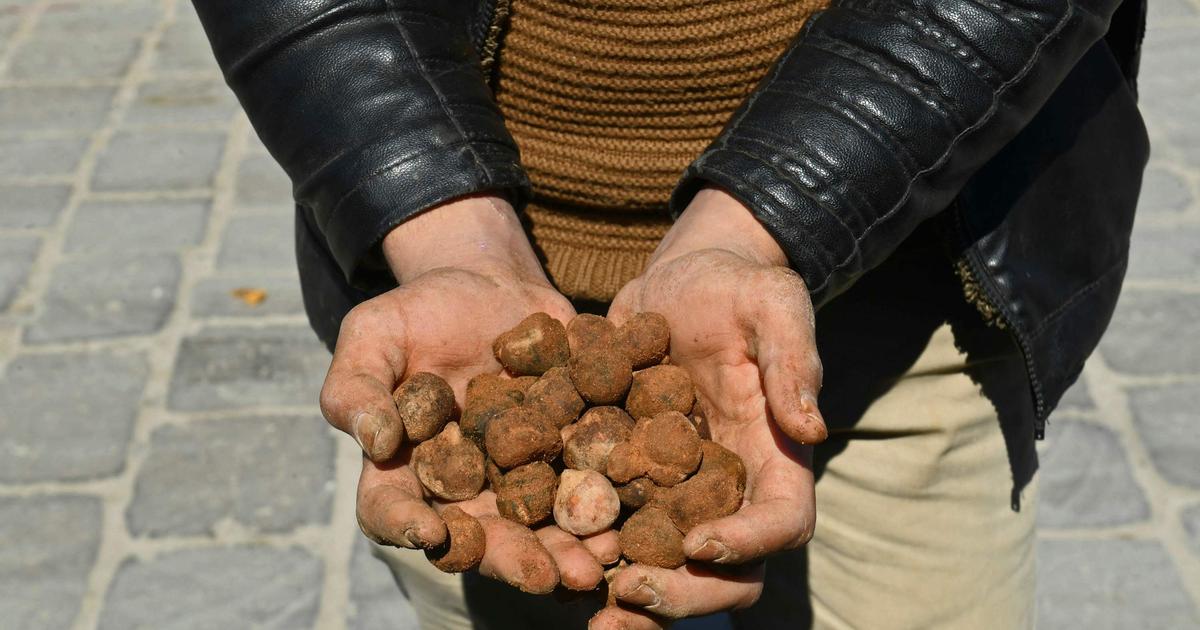

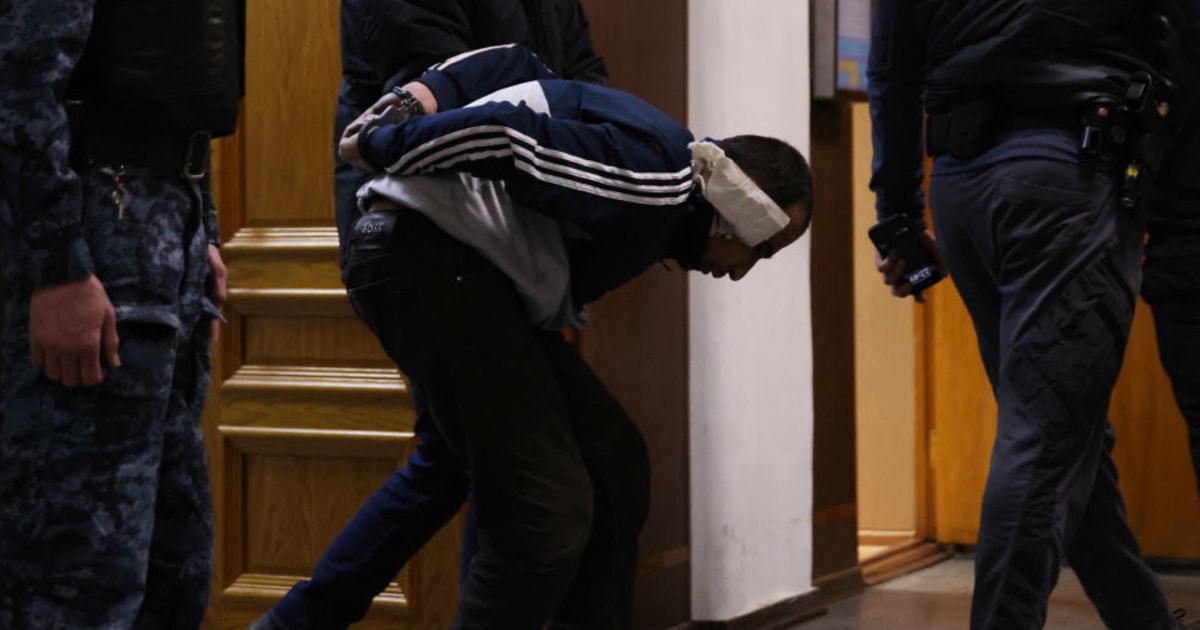
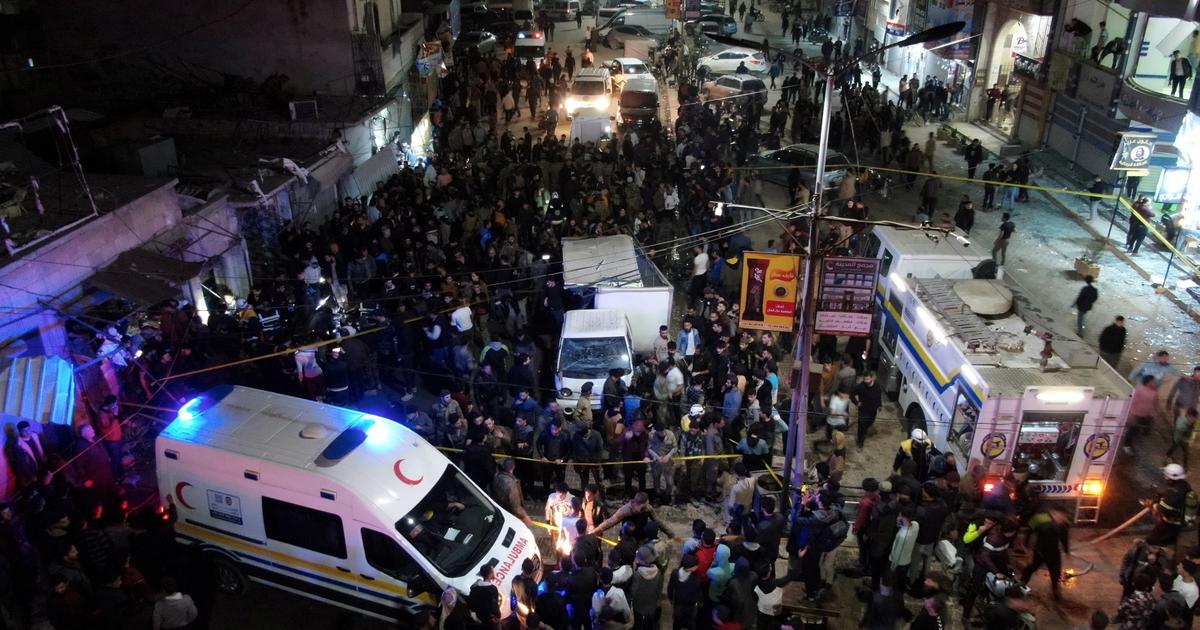
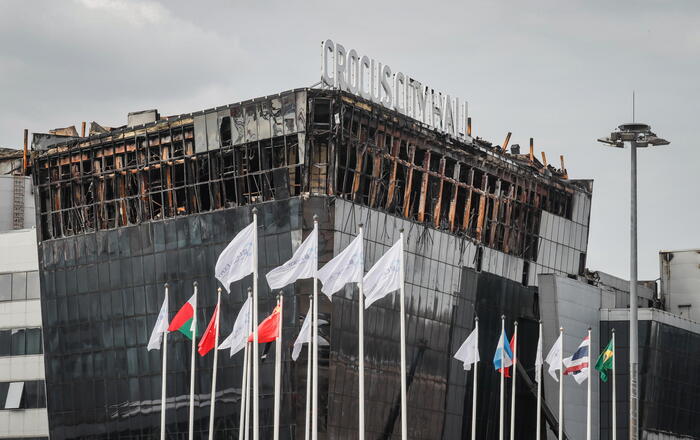
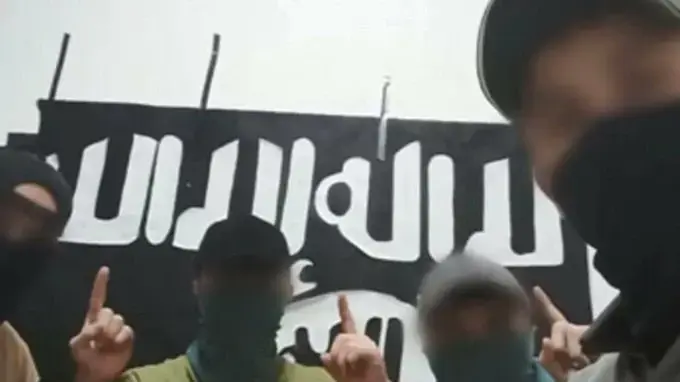


/cloudfront-eu-central-1.images.arcpublishing.com/prisa/KMEYMJKESBAZBE4MRBAM4TGHIQ.jpg)


